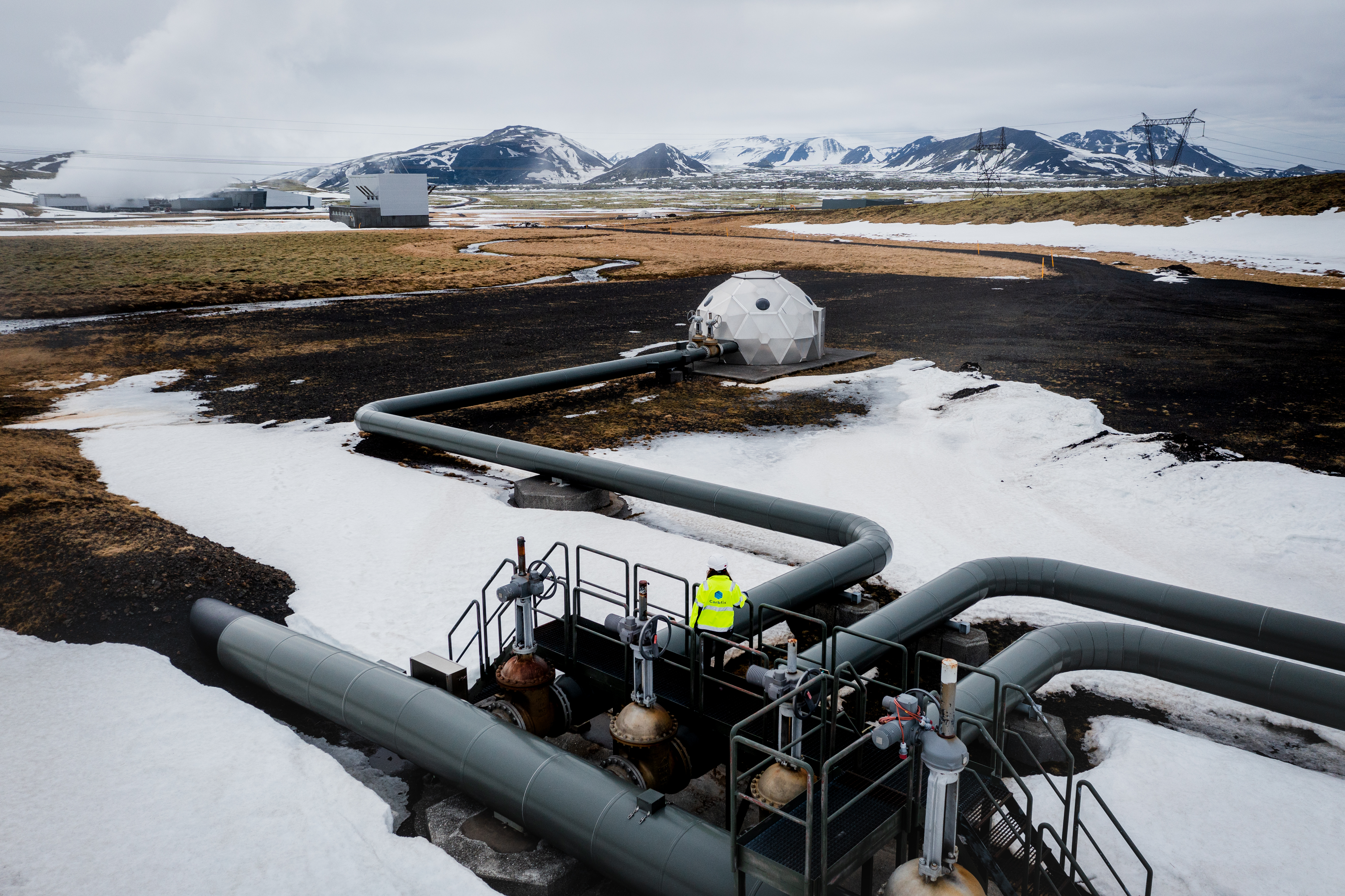
The Silverstone project uses Carbfix, a mineralisation technology which turns captured CO2 into stone in less than two years underground. It follows the same process that nature has applied for millions of years to regulate long-term CO2 levels in the atmosphere. This way of permanent CO2 capture and mineral storage promises to be more economical than alternative carbon capture and storage solutions. The project is environmentally friendly and entirely self-sufficient regarding its water, energy and geological storage needs.
The innovative project secured up to €3.9 million in funding from the Innovation Fund, one of the world’s largest investment programmes for net-zero and innovative technologies financed by EU Emissions Trading System revenues. The Silverstone project, situated at the ON Power Plant in Hellisheiði, is a cooperation between Carbfix and ON Power, one of the largest single-site geothermal power plants on the planet. It anticipates making a significant impact towards the European Green Deal’s targets and Europe's green transition.
Since 2014, Carbfix, the world’s first CO2 mineral storage operator that takes its name from the technology itself, has captured 30% of carbon dioxide and an impressive 75% of hydrogen sulphide emissions from the Hellisheiði power plant, injecting approximately 12,000 tonnes of CO2 annually underground. This process rapidly transforms CO2 into solid carbonate minerals, proving to be safe, efficient, and environmentally friendly through the injection of CO2 dissolved in water into basaltic formations. With the integration of the Silverstone project, the annual carbon capture capacity will increase to 34,000 tonnes of CO2 which is the equivalent of 14% of total Icelandic domestic heating and 12% of Icelandic domestic electricity usage. Over its first 10 years of operation, the project is expected to reduce emissions by an estimated 150,000 tonnes of CO2 which would otherwise be released into the atmosphere.
The commissioning of the new carbon capture plant is scheduled for the final months of 2024. The project has considerable potential for scaling up and can provide a significant impact on emission reduction within the geothermal sector. The process relies on effluent condensate water from steam turbines, a by-product of electricity generation that would otherwise be released into the atmosphere, making it highly sustainable. The Icelandic Carbfix solution can be applied in other areas with access to water and suitable rock formations. Basalt, an ideal rock type for CO2 mineral storage, is one of the most common rock types on Earth. Following the successful implementation of the Silverstone project at Hellisheiði, Carbfix and ON Power will continue to scale up the technology at ON Power Nesjavellir Geothermal plant in Iceland.
- Start date
- 1 Dec 2021
- Project locations
- Iceland
- EU contribution
- €3 867 988
